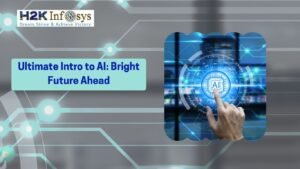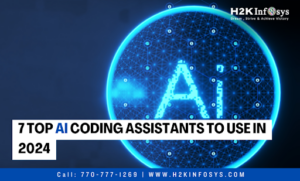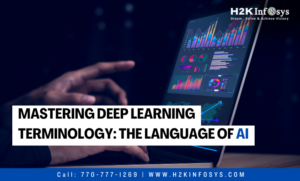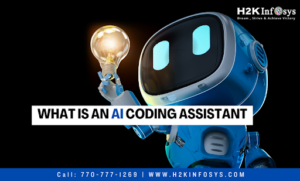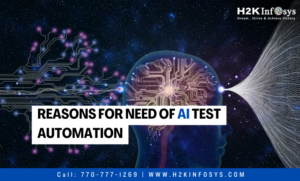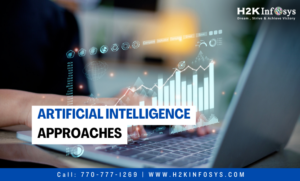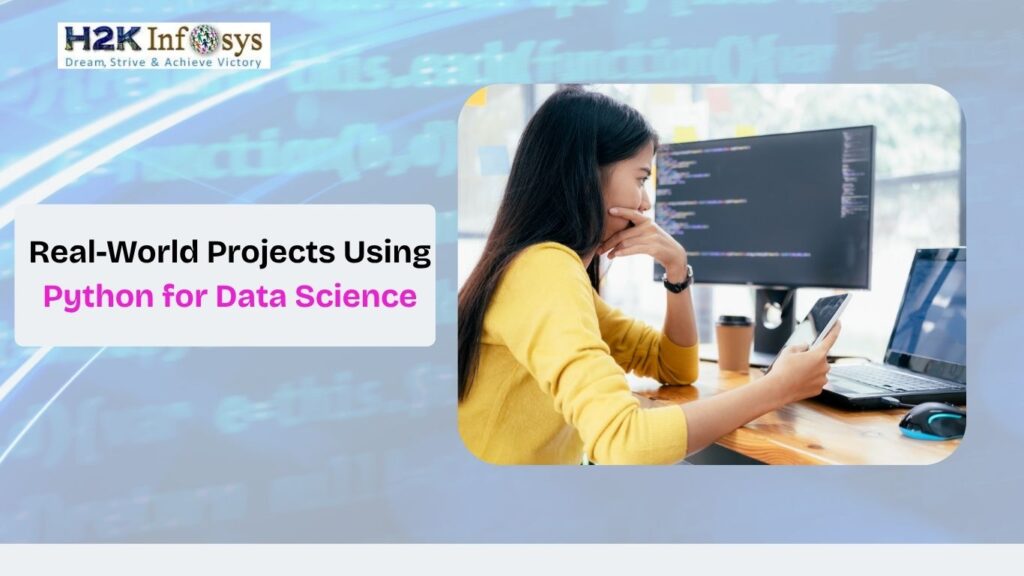The application of artificial intelligence is no longer seen in comic science fiction alone; it is progressively becoming a huge part of our day-to-day life, from smart sensors and cameras that enable us to take perfect pictures to the automatic driving and parking features in automobiles. We are already making use of personal assistant tools like Alexa by Amazon and Siri by Apple; plus the increasing demand for artificial intelligence online training as well as Machine learning courses.
We are just beginning to witness the potentials of AI in education, and we should look forward to seeing more. According to reports from the AI market in the American educational sector 2017-2021, it stated that experts expect artificial intelligence in education to increase by 47.5% from 2017 through 2021. With this much-anticipated growth of AI in education, here is a glimpse of the roles it will play in education generally.
- Automation Of Basic Activities
Artificial intelligence can be applied in the automation of grading activities originally carried out by teachers who are usually already occupied with other academic work such as preparing for lectures, teaching the students, and providing answers to all questions asked. Hence, grading assignments can be a very daunting task for teachers in schools and colleges. Grading students’ work is one activity that often takes up a substantial amount of time. This time could have been used for other more important duties, such as interacting with the students to understand their weak spots and providing them with the appropriate assistance they need. However, AI is not able to fully replace human grading. However, it is getting quite close. We now have what we call automated grading for all manner of multiple-choice and fill-in-the-blank questions. Automated grading of student writing may follow suit in no time. Presently, essay-grading software is still in its inception phase and not yet ready to par. Nonetheless, it can improve with time, allowing teachers to focus more on intimate activities and student-to-relationship than grading.
- Educational Software Can Be Accustomed To Student Needs
Artificial intelligence can transform education by applying greater levels of personalized learning. We are already experiencing this through rising numbers of customizable learning programs, software, and games. These systems are designed to respond to students’ needs, focusing on specific topics, repeating lessons that students are yet to master, and typically assisting students in working at their own pace. This kind of tailor-made education could be a machine-aided solution to helping students of various levels work together with teachers making the learning process easier and providing the needed help and support at the appropriate time. Personalized learning already has a significant impact on education globally, especially via programs like Khan Academy. As artificial intelligence advances in the decades to come, these adaptive programs will also improve and grow. Creating a learning environment based solely on individual student’s needs and interests is a goal that most educators have prioritized over the years. With the advent of AI, this goal can be easily achieved. Intelligent educational software and e-learning systems will allow a level of differentiation that is impracticable for teachers who have to handle 25 students in a class. Various companies like Carnegie learning and Content Technologies are currently building intelligent software and digital platforms that are AI-powered to provide live classes, feedback, and examinations to students in schools and colleges. As artificial intelligence continues to advance, we might have machines that can read the expressions on a student’s face to indicate if a student struggles with understanding a particular topic or subject. The machine will then modify a lesson in response to that.
- Ability to pinpoint course loopholes
Most times, teachers are unaware of loopholes in their lectures that can confuse certain concepts. Artificial intelligence can solve this problem. A very good example is Coursera, a prominent online course provider that already uses this AI technology. In Coursera, when students submit the wrong answer to an assignment, the system prompts the teacher and sends the students involved a customized message containing hints to the correct answer. This kind of feature helps to cover the gaps in explanation that may crop up in courses. It also ensures that every student is building the same conceptual framework. Students can get quick feedback, which enhances their understanding of the topic being taught instead of waiting on their teachers or instructors to do so, which might often take time depending on the number of students involved.
- Changing how we find and use information
Artificial intelligence affects the information which we see today. For example, Google search engine adapts results to users on the basis of their location, Amazon Alexa provides answers and recommendations based on previous purchases, Siri adjusts to your needs and orders, and practically all web ads are tailored towards your interests and preferences. These AI systems play a major role in using the information in our personal lives and in our businesses. It could also change how we use information in the academic world as well. In recent years, artificial intelligence-based systems have already enhanced the way we interact with data. With novel and more comprehensive technology, students in the future can have widely different experiences while researching compared students of today.
- Changing the role of teachers
The role of teachers in education can never be overlooked. However, certain functions that teachers perform may change due to the introduction of novel technology through smart computing systems. As discussed earlier, AI can handle tasks such as grading and can help students enhance learning. In addition, AI could also be applied in other aspects of teaching as well. AI systems could be designed to provide proficiency and serve as a means for students to ask questions and receive answers about aspects of the course that are not clear to them. AI has the potential of acting as teachers for fundamental course materials. The bottom line is that, for the most part, AI will change the role of teachers to that of facilitators. Teachers will augment AI lessons, provide assistance to students experiencing difficulties, and give human support and interaction. Most of these changes are already being implemented in classrooms, particularly in online schools, or adopt the flipped classroom model.
- Trial And Error Style Of Learning Made Easy
Trial and error is a very productive aspect of learning. However, several students have a wrong perception about failing or not knowing the answer to a question. Students typically don’t like to be embarrassed in front of their peers or teachers. The smart computer software that is designed to assist students in learning is a much less intimidating way to leverage the trial and error approach to learning.
- Enhanced schooling process
AI has introduced changes to how schools and colleges interact and communicate with their current and prospective students. From registration to helping students select appropriate courses for their chosen departments, smart computer systems are helping to make the entire college process an exciting experience for students. Data mining systems are already being used to improve high school processes. Artificial intelligence will further enhance higher education. Some schools are already making an effort to provide their students with AI-guided learning to ease the transition between college and high school. Artificial intelligence can bring about a college screening process similar to that of Amazon and Netflix with software that recommends the most suitable schools and courses for students. With time, there might be a need for teachers to take fundamental artificial intelligence online training so as to be able to cope with the novel educational system.
- An improved learning process
Artificial intelligence has the capability of drastically changing virtually everything that we take for granted about education. With the aid of artificial intelligence systems, applications, and support, students can attend classes from anywhere in the world and at any time. Educational programs powered by AI are now used in helping students learn core skills. These programs are continually improved upon by AI professionals who have undergone artificial intelligence online training and machine learning courses to provide a broader range of services.
- Universal Accessibility
AI tools can help create global classrooms accessible to all students across the world; this includes students from various human races, varying languages, and less privileged students. There are various AI tools such as Presentation Translator, a plug-in for PowerPoint that creates live subtitles for what the teacher is saying; this also creates the opportunity for students who are unable to attend lectures due to ailment or require a separate level of learning on a particular course or subject that is unavailable in their school.
- Effective support outside the classroom
There are several parents who often struggle to help their wards with mathematical assignments such as algebra and calculus. AI can help simplify this problem. Training and studying programs are taking another dimension with the application of artificial intelligence. Soon we will have smart systems that can help students with their homework and in test preparations. There are other AI applications that are developed for educational purposes, such as AI mentors for learners and virtual global conferences.
Conclusively, artificial intelligence is continually gaining ground in all aspects of our lives. Incorporating artificial intelligence into the education sector is a great move; this will help children have a beforehand experience of what artificial intelligence is and apply it in their everyday lives. This could also help motivate students to develop an interest in learning AI courses from their tender age.







